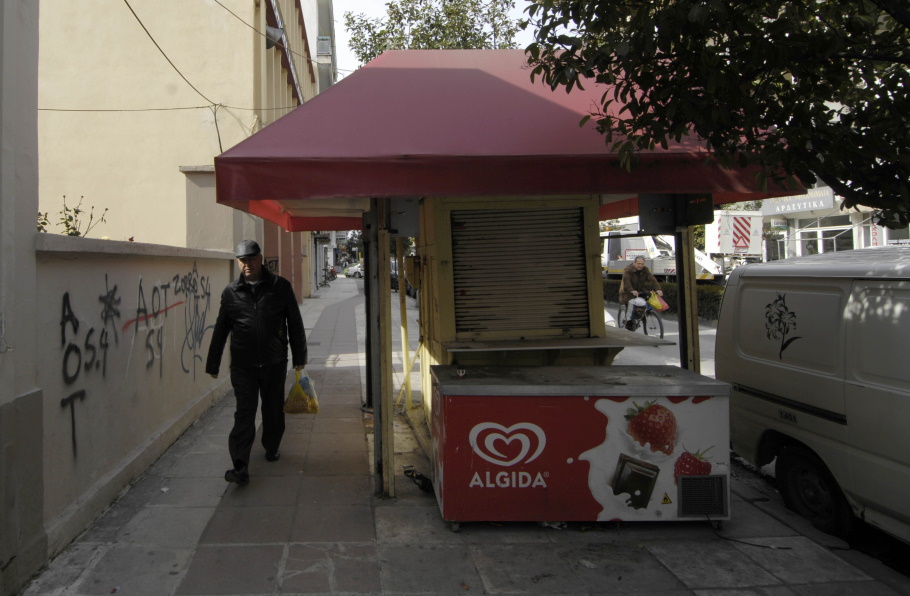
once upon a time Kiosks It was considered (and has been) a very good small family home a job It was part of her daily life Greece. First aid station and meeting place. Reference point.
The saying “Open a stall to save yourself” remained engraved in everyone’s memory, and everyone wore clothes and shoes to obtain the desired permit, and – in fact – very few were entitled to open (once) “small gold mines.”
The kiosks, which began as a benefit for war invalids, evolved into a small department store, then went from…an information office to a call centre.
Sales of newspapers, cigarettes, ice cream and soft drinks were satisfactory in the years before the financial crisis, and consumers found everything in these little umbrellas that for decades had been a triumph of small business, covering their financial needs.
However, the economic crisis also hit a specific sector and the difficult decade of the crisis, the pandemic with the closure of restaurants (after people stopped shopping) but also the living conditions brought stall owners to their knees, who saw their turnover decline. Dive.
Moreover, many smokers, who used to buy cigarettes from kiosks, turned to tobacco smuggling because they found cheap products, and convenience stores also collapsed.
Small market chains, which are constantly gaining market shares, also contribute to the disappearance of kiosks from the business map, the history of which began in Nafplio, when the first kiosk was opened in Greece. In Athens, the first kiosk appeared in 1911 on Panepistimi Street.
Data-shock
The Hellenic Positions Union figures prove the validity of this statement. In 2010, we counted 11,000 kiosks across Greece, now less than half remain (less than 5,000) while in Athens there are 450 of the 1,200 kiosks that existed before the financial crisis. In Thessaloniki the situation is worse. From 3,000 in 2010, today the number of stalls is only 700 and in Patras, only 117 stalls remain, up from 332 a decade ago.
The only exception, so far at least, seems to be kiosks in densely populated neighborhoods, which appear to be holding out.
Beginning of the End
The beginning of the end seemed to begin after 2012, when the Troika put the kiosks in the frame by changing the licensing authority. Every kiosk owner who retires or dies also means the business is closed, since the license will no longer be transferable. It is worth noting that municipalities are now the ones that have the institutional competence – for licensing – and spatial planning.
The selling point is the free shot
According to the federation, the POS was a free throw since their use is now mandatory at kiosks as well. Why; They reduce the profit margin to the level of loss for basic goods sold by kiosks (cigarettes, newspapers, cards, jewelry) due to the mandatory commission charged by banks for using points of sale on the turnover.
With the use of POS, as described in “Sunday A”, industry operators and kiosk owners incur a monthly transaction and maintenance cost of €0.05 per transaction, thus losing 50% of their profits from the sale of tobacco products.
Follow Powergame.gr on Google News for instant and valid financial information!

“Avid problem solver. Extreme social media junkie. Beer buff. Coffee guru. Internet geek. Travel ninja.”





More Stories
“Recycling – Changing the water heater”: the possibility of paying the financing to the institution once or partially
Libya: US General Meets Haftar Amid Tensions Between Governments
New tax exemption package and incentives for business and corporate mergers..